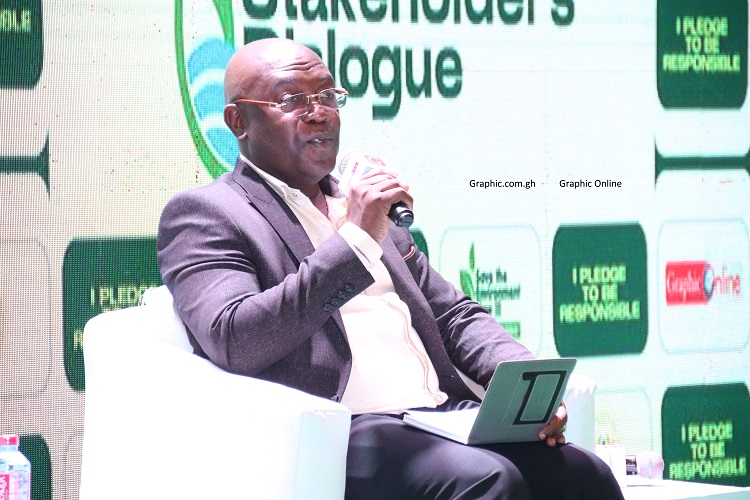
Restoring galamsey lands: UMaT clears mercury from soil
The University of Mines and Technology (UMaT) says a breakthrough technology that removes mercury from the soil is one of the surest means to correct the damage caused by illegal mining to the environment.
The scientific process developed by the university, is a welcome discovery as Ghana battles to reclaim lands and water bodies devastated and polluted with mercury used in illegal mining.
The Vice-Chancellor of UMaT, Prof. Richard K. Amankwah, said the university developed the solution as its contribution to the elimination of mercury from the soil.
With the extensive damage to the environment, including the depletion of over 4,000 hectares of forest reserves and pollution of water bodies, medical staff have reported strange conditions involving deformities among newborns in galamsey endemic areas in the country.
Advertisement
Prof. Amankwah said the solution, known as phytoremediation technologies, involves the planting of specific tree species in a polluted area to clean up the soil, air and water contaminated with hazardous materials.
"We will plant the trees over the entire area.
The tree will absorb all the mercury and then we will harvest the plant, and the mercury is gone," Prof. Amankwah, himself a mining engineer, said.
He said the university was also engaged in the cleaning of water bodies with high levels of turbidity.
Solution
Prof. Amankwah made the statement last Friday during a panel discussion on mining after the opening of a two-day stakeholders dialogue organised by the Graphic Communications Group Limited (GCGL) in collaboration with the Ministry of Lands and Natural Resources in Accra.
The event, themed: “Harnessing our Natural Resources for our Sustainable Collective Good”, was aimed at providing a platform for participants to deliberate and share practical perspectives to facilitate Ghana's progress on harnessing its natural resources for the sustainable good of the public.
UMat concessions
The university, Prof. Amankwah said, had started developing a small- scale mine in collaboration with the Minerals Commission, which had supported UMaT with two concessions.
"Exploration work has started.
We want to start a small-scale mining school where we train graduates on small-scale mining so that they will not only have the theory and classroom experience but the field experience as well," he said.
The aim of training in small-scale mining, he explained, was to ensure that students were prepared to start their own businesses.
"When they complete their education, they will not wait for the large-scale miners to offer them employment but they can take advantage and start their own small scale-mining," he said.
Prof. Amankwah said the university’s two concessions were also being used to train small-scale miners on the best environmental practices in the sector to bring sanity into the industry.
In the large-scale mining sector, he said UMaT was working with Atlantic Lithium at Awoyaa, near Saltpond, to localise the value chain in the lithium industry.
The move, he said, was to give room for Ghanaians to participate directly in the sector and add value to lithium.
He said the university had also commenced a weekly educational programme, known as the radio small- scale mining school, where stakeholders in the mining industry and regulatory bodies and communities discuss sustainable mining and other issues of interest to the sector.
Prof. Amankwah said UMaT had instituted June 2 as Sustainable Mining Awareness day in collaboration with the Ministry of Lands and Natural Resources and the Small Scale Miners Association to create awareness.
"We have signed a joint venture with another group to start the production of activated carbon," he said.
Activated carbon industry, he said, was about $2 billion in Ghana, and that when the contract between the university and the company eventually went into full operation, Ghana would be able to keep about 20 per cent of activated carbon in the country.
Small-scale mining
Prof. Amankwah said persons who engaged in illegal mining were unpatriotic and had no love for their country.
Illegal mining, popularly referred to as galamsey locally, is an acute problem in Ghana and has over the years been responsible for deforestation and soil erosion in the communities where it is rife.
"The fundamental problem is about the fact that many Ghanaians do not love Ghana because if they did they would not be engaged in illegal mining and destroying the environment," Prof. Amankwah said.
He called for intensive sensitisation and education of the public to reverse the practice, and recommended effective enforcement of the law to discourage illegal mining.
"The university is doing a lot, and all we are asking for is the government and all to support us," he said.
